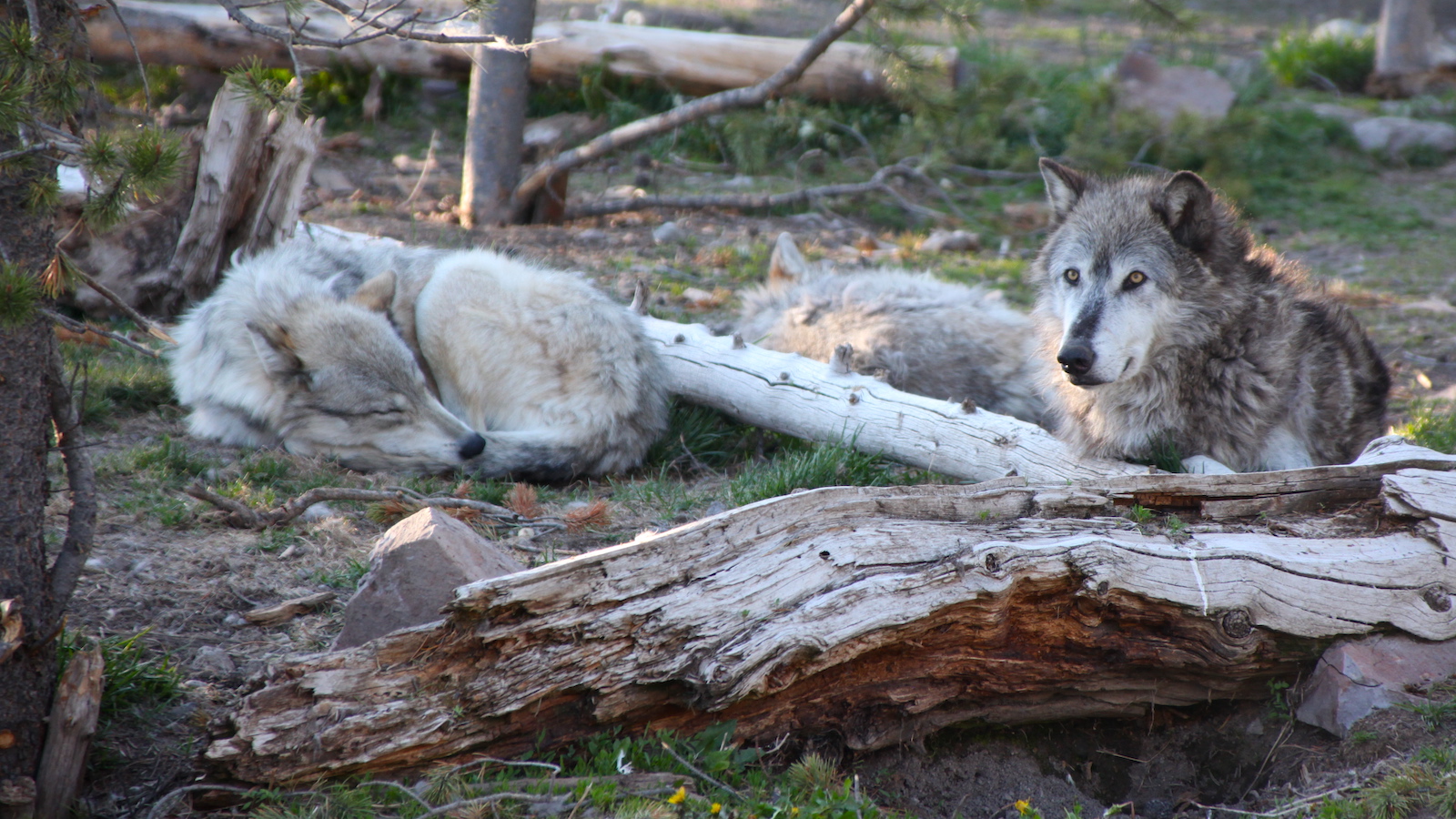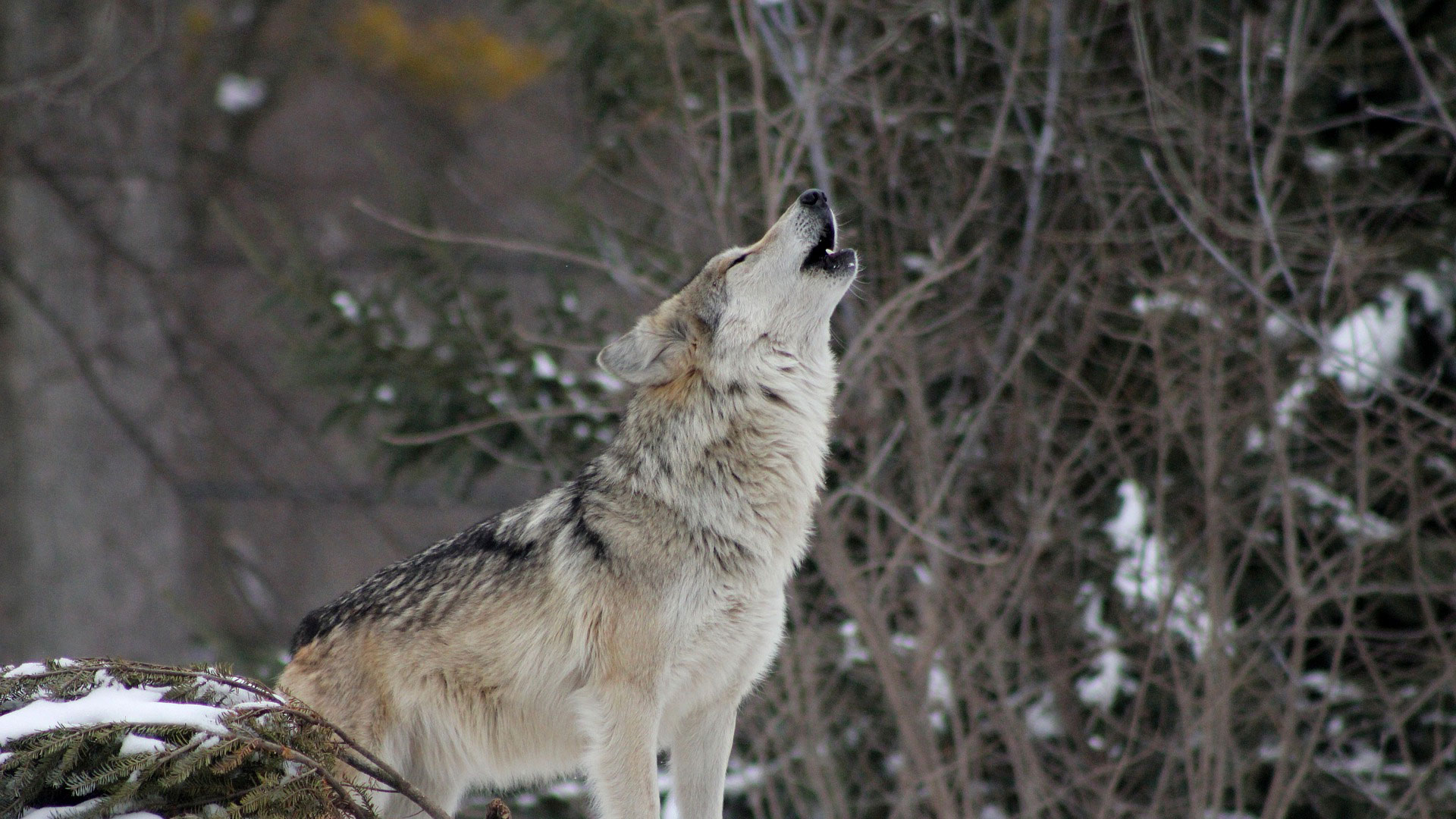Gray wolves left vulnerable without endangered species protections
Fewer than 6,000 gray wolves remain in the contiguous United States, but last year the Trump administration stripped the species of its endangered species protections. Now states are free to enact laws that allow the killing of up to 90% of their gray wolf population.

This blog was authored by the Public Interest Network Intern Sarah Crawford
When the Trump administration removed gray wolves from the endangered species list last year, it opened the door to killing sprees that have already taken the lives of hundreds of these wolves.
In Wisconsin alone, a wolf hunt in February wiped out 216 gray wolves in just 60 hours, blowing well past the kill quota of 119.
And if you thought that was bad, it’s about to get much worse: Wisconsin is doubling its killing quota — up to 300 — despite objections from state agency biologists.
States allow mass killings of gray wolves
It would be one thing if gray wolves were flourishing, but this majestic animal only roams about 10% of its original territory. Plus, last year, the Trump administration stripped the gray wolf of its federal endangered species protections.
Without the restrictions in the Endangered Species Act, state lawmakers were quick to enact devastating legislation for the fewer than 6,000 gray wolves left in the lower 48 states.
In Montana and Idaho, lawmakers have allowed the killing of up to 90% of their wolves. These laws even allow brutal killing methods, from using ATVs and snowmobiles to run wolves down to baiting wolves into traps where they could struggle for days.
Right now we’re at a crossroads: We either give gray wolves their protections back, or we watch as state-sanctioned hunts threaten the survival of this beautiful species.
The Biden administration must act quickly
It’s only been a year since the Trump administration removed gray wolves’ Endangered Species Act protections — but in these past months, gray wolves have been targeted in hunts that will take generations to recover from. The Fish and Wildlife Service has taken steps to defend the Trump administration’s decision in court, but the Biden administration hasn’t made a final decision yet about restoring protections for wolves.
We’ve seen what these hunts have led to before. In 2011, wolves around the Great Lakes lost protections — and in turn, more than 1,500 wolves were killed in three years.
The situation was so bad that a federal court had to step in — but before it did, more than 15,000 people applied for permission to kill a wolf. Between these killings and habitat loss, one thing is clear: The Endangered Species Act is the last line of defense for gray wolves.
This is why Environment America is collecting thousands of petition signatures urging the Fish and Wildlife Service to reinstate gray wolves’ endangered species status
TAKE ACTION
Photo: Steve Jurvetson via Flickr, CC BY 2.0
Topics
Authors
Mary Katherine Moore
Find Out More

A look back at what our unique network accomplished in 2023

Why gray wolves still need, and deserve, our protection

EPA report says pesticides endanger wildlife


